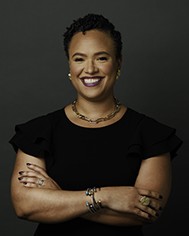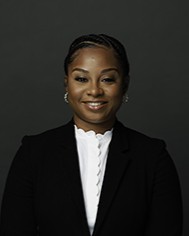Corporate Immigration 2025 Comparisons
Contributed By McKinney, Bancroft & Hughes
Law and Practice
1. Policy
1.1 Immigration Policy
The current immigration policy is primarily shaped by the National Policy Framework on Immigration implemented by the government of The Bahamas in February 2023. This framework, by its terms, is focused on issues relating to migration, border control, and international cooperation.
1.2 Upcoming Policy Changes
The authors are not aware of any upcoming changes to the immigration policies or laws in this jurisdiction that will impact the current procedures in place for visitors or applications for work permits or residency permits.
2. Visa Options
2.1 Sponsor-Based Employment Visas
Any individual seeking to be gainfully employed in The Bahamas requires a work permit. Work permit applications must be submitted (and essentially sponsored) by an entity or individual established or situated in The Bahamas. The types of work permits available are:
- short-term work permit (up to 30 days);
- short-term work permit (30 to 90 days); and
- long-term work permit (annual or 2+ years in certain instances upon application).
2.2 Pathways to Permanent Residence
In certain categories, people who have held legal work permit status in The Bahamas for at least ten years but less than 20 consecutive years are eligible to apply for Permanent Residence. Such categories include, but are not limited to, dancers, disc jockeys, bartenders, cooks, dental assistants, dock masters, auto body mechanics, receptionists, sales clerks, construction workers, gardeners and live-in housekeepers. Individuals who have held legal work permit status for employment not included in the above-mentioned categories for more than 20 consecutive years are also eligible to apply for Permanent Residence status. Such job positions include, but are not limited to, engineer, shop manager, assistant accountant, pharmacist, auctioneer, charterer and cosmetologist.
2.3 Unsponsored Work and Investment Visas
Work permits require sponsorship, as noted in 2.1 Sponsor-Based Employment Visas.
With respect to investments, there are no “investment visas”; however, persons who have either:
- purchased a residence for BSD1,000,000;
- made a business investment in the Bahamian economy for BSD1,000,000; or
- made a combination of both residence purchase and business investment totalling BSD1,000,000,
- are entitled to apply for Permanent Residency status in The Bahamas and have the right to work in their own business.
2.4 Business Visitors
Visitors to The Bahamas must not engage in a gainful occupation in The Bahamas without a valid work permit.
2.5 Pre-Travel Authorisation
Citizens of certain countries must obtain a visa before entering The Bahamas. These countries include Albania, Iraq, India, Nigeria, Yemen, and Somalia. However, visitors who do not require a visa must ensure that their travel documents are valid and up to date. In particular, passports must be valid for at least six months.
2.6 Remote Working
Presently, there is no special provision for remote work. Persons desirous of residing in The Bahamas while working remotely must obtain a Permit to Reside. Permits to Reside are granted for one year and renewed annually. A person who holds a valid Permit to Reside is not allowed to engage in gainful occupation in The Bahamas.
3. Visa Requirements
3.1 Prerequisite Language Requirements
There are no language prerequisites for obtaining a visa. However, all applications and supporting documents must be submitted in English, and certified translations are required for any documents that are not in English. Please note that English is the official language of the Bahamas.
3.2 Medical Certificates or Vaccinations
Medical certificates are required for all applications for long-term work permits and residency permits. There are vaccination requirements for applicants from certain countries, and these entry requirements are listed on the Department of Immigration’s website. However, as an example, yellow fever vaccination certificates are required in most South American countries, including but not limited to Argentina, Bolivia, Brazil, Colombia, Ecuador, Peru, and Venezuela. Further, persons applying for a work permit for 90 days (or longer) must be vaccinated against smallpox.
3.3 Sponsor Requirements
There are no specific minimum thresholds for qualifications for salaries and requirements in The Bahamas for obtaining work permits. However, it is generally the case that the specific job cannot be filled by the Bahamian workforce.
As it relates to salaries, the current minimum wage rates are BSD6.50 per hour, BSD52 per day, or BSD260 per week, depending on how the wages are earned.
3.4 Employment-Based Visa Limitations
Work permits are granted to employees or individuals operating and/or located in the Bahamas. The work permit holder can only be employed by the entity or individual registered as the employer.
3.5 Criminal Background Checks
All persons are required to submit a police certificate from their country of residence when applying for a Long Term Work Permit, Short Term Work Permit over 90 days, Permit to Reside (also called Annual Residence Permit), Homeowner Resident Card, Resident Spouse Permit, Permanent Residence or Citizenship. The police certificate must come from a country where the applicant has lived for at least five years, and it must be dated no more than six months before submitting the application. In lieu of a police certificate, the applicant may submit a sworn affidavit of good character for an application for a Short Term Work Permit for over 90 days. The decision to refuse an application based on criminal history is at the sole discretion of the Board of the Department of Immigration.
3.6 Financial Resources
Applications that typically require a financial reference letter include Permits to Reside (also called Annual Residence Permit) and Permanent Residence. Kindly note that the Department of Immigration may request proof of financial support for any application as deemed necessary. Further, a sponsor/employer is allowed to submit proof of financial support on an applicant’s behalf. Financial references are used to indicate that the applicant has sufficient funds to support themselves while living in The Bahamas, particularly as the right to work in The Bahamas must specifically be applied for, other than in relation to work permit applications.
4. Immigration Process
4.1 Method of Submission
Applications can either be submitted in person (ie, a hard copy) by an Attorney or someone else acting on the applicant’s behalf directly at the Department of Immigration or electronically via the Department of Immigration’s online portal (immigration.gov.bs). It is to be noted that persons applying for New Long-Term Work Permits must be outside of the jurisdiction while the application is being processed.
4.2 Country of Application
All applications for a permit or other legal status issued by the Government of The Bahamas must be submitted to the Department of Immigration in The Bahamas (either in person or online). Persons in conflict area jurisdictions may seek assistance from their nearest Bahamian consulate/embassy.
4.3 Visa Processing Times
It should be appreciated that application processing times vary, and it is difficult to provide an accurate timeline. However, based on current experiences, the following timelines can be expected for permit processing:
- short-term work permits – within one to three weeks; and
- long-term work permits – within four to six months (unless subject to the relatively new expedited application process).
4.4 Travel Restrictions Once Application Filed
Applicants must remain outside of the jurisdiction while processing all new long-term work permit applications.
4.5 Expedited Visa Processes
Under a new process, long-term work permit applications may be expedited for a fee of BSD600. Expedited applications are considered within 14 days of submission of all requisite information and documents, along with payment of the BSD600 fee.
4.6 Post-Visa Requirements
Individuals may also be required to have their fingerprints taken at the Department of Immigration prior to the issuance of the physical visa card. This is determined on a case-by-case basis at the time of the application’s approval.
In addition to abiding by the laws of The Bahamas, the individual must comply with any conditions or restrictions imposed by the Board of Immigration outlined on the relevant permit/visa, including the limitation concerning the employer they are permitted to work with.
5. Immigration Costs
5.1 Typical Cost of a Sponsored Employment
The processing fee payable for work permit applications is BSD200.
The fee payable for the permit is dependent on the position that the applicant will hold. This ranges from BSD500 for positions such as a farm labourer to BSD16,275 for positions such as President, Vice President, Company Director, or Chief Executive Officer. Note that the actual permit fees are prorated for the length of time that the permit is applied for, provided that the time period is less than 12 months.
5.2 Payment of Visa Costs
The employer and employee are at liberty to determine how the cost of the work permit will be paid. The employer, however, will be the party that the government holds responsible for any repatriation costs and expenses upon cessation of the work permit.
6. Enforcement
6.1 Enforcement Action
If a person enters The Bahamas without a valid passport, visa (if required), or any other document permitting their entry, they may be deported, fined an amount not exceeding BSD300, face imprisonment for up to 12 months, or experience both a fine and imprisonment.
If a sponsor/employer employs an individual who is prohibited from engaging in gainful employment (ie, someone who does not have the right to work), the sponsor/employer shall be liable for a fine not exceeding BSD10,000 or imprisonment for a term not exceeding five years, or to both fine and imprisonment.
6.2 Employer Obligations
Prior to obtaining an employment-based visa (work permit), an employer must comply with the requirements accompanying the submission of a work permit application. These include advertising the position in the local newspapers and obtaining a Certificate of Labour from the Department of Labour to confirm that this process has been completed.
Subsequent to obtaining an employment visa for an applicant, an employer must ensure that the employee’s work permit is valid, that the employee is working within the relevant job description, that they comply with any conditions/restrictions thereon and that the employee’s National Insurance contributions have been paid and are up to date. If the employee ceases to be employed, the employer must advise the Department of Immigration of such detail at the earliest opportunity and provide proof of the former employee’s departure from The Bahamas (eg, copy of travel itinerary, departure ticket or boarding pass). If an employer fails to keep an employee’s National Insurance contributions up to date, the permit/visa will not be renewed until sufficient payment has been made. Other penalties for non-compliance by an employer are referenced in 6.1 Enforcement Action Against Individuals and/or Sponsors.
6.3 Right to Work Check Requirements
There is no “Right to Work check” requirement in The Bahamas, albeit an employer is obligated to confirm that an employee is authorised to engage in gainful occupation in The Bahamas. Failure to do so could result in the employer being subject to the penalties noted in 6.1 Enforcement Action Against Individuals and/or Sponsors.
7. Accompanying Family Members/Dependants
7.1 Recognised Family Relationships
Spouses and children under the age of 18 are eligible for a Permit to Reside based on them being dependents of a visa holder. Note that if a child is not accompanied by both parents, evidence of legal custody from the accompanying parent/guardian will be required.
7.2 Dependant Visas
Dependents obtain a Permit to Reside, which does not allow them to engage in any gainful occupation.
McKinney, Bancroft & Hughes
Mareva House
4 George Street
PO Box N-3937
Nassau
New Providence
The Bahamas
+242 502 9750
+242 328 2520
nassau@mbhbahamas.com www.mckinney.com.bs


